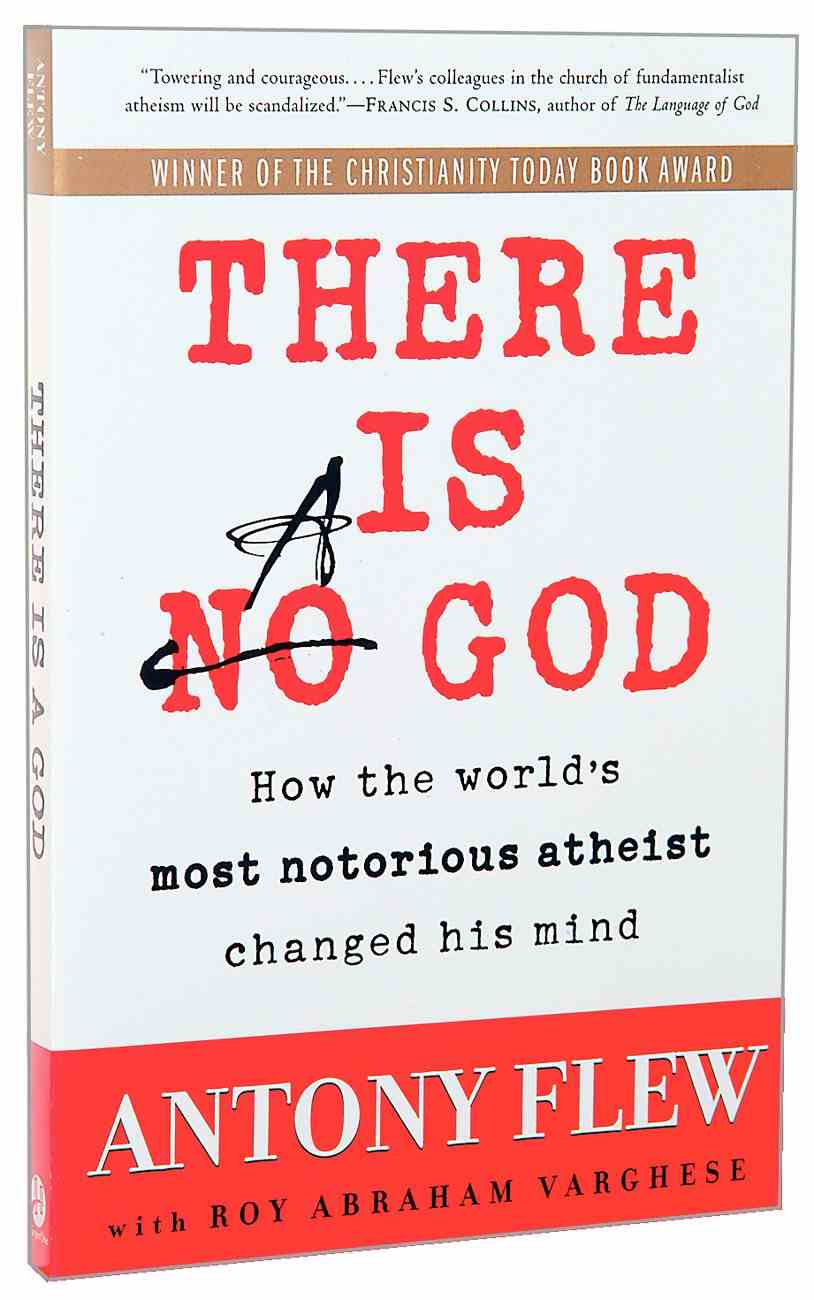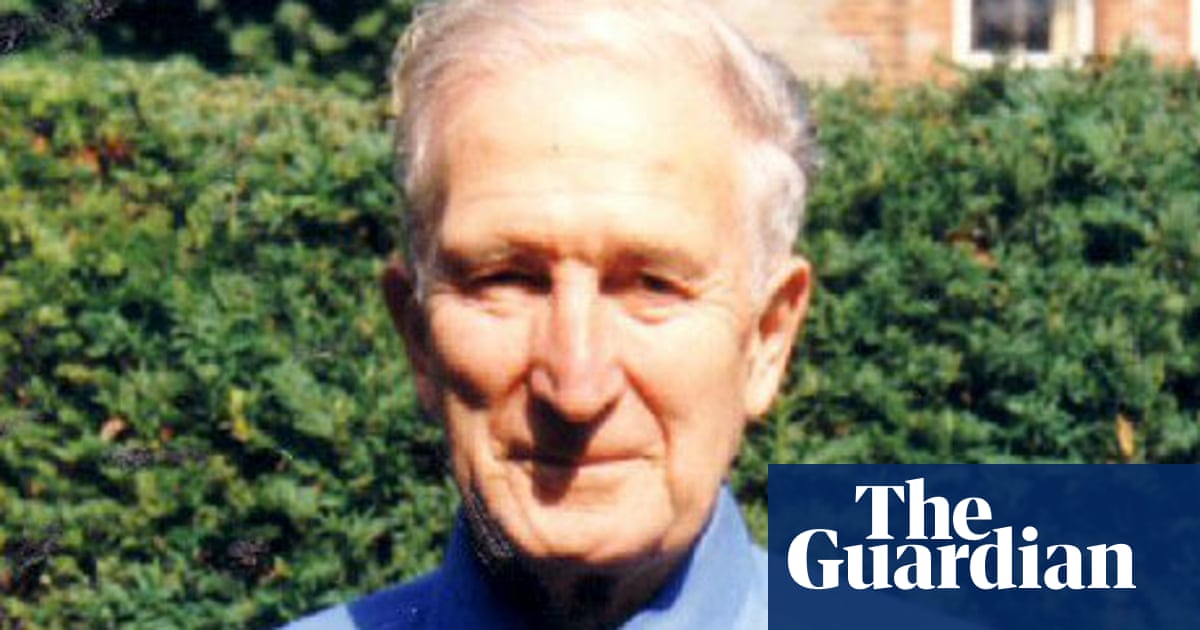The World’s Most Notorious Atheist -now a believer?

I have just read the now-famous book that sent shock-waves around the world when it was published in 2007: “There is a God: How the World’s Most Notorious Atheist Changed His Mind”. The book is the self-reflections of Antony Flew, arguably the most influential atheist of the 20th century, who eventually came to believe in God after a lifetime of study of science and philosophy.
The claim of the book’s subtitle, “The World’s Most Notorious Atheist”, is not an exaggeration. Antony Flew was, for half a century, an intellectual giant among the world’s atheists and their most influential voice. His 1950 publication, “Theology and Falsification”, became the most widely reprinted philosophical publication of the last 70 years and established a systematic philosophical foundation for modern atheism.

Over the following 50 years, he wrote about 30 books and papers, including “God and Philosophy”, “The Presumption of Atheism” and “How to Think Straight”, all of which became the mainstays of the worldwide atheist movement. You may not have heard of Antony Flew, but he is, without doubt, the most influential atheist of at least the last century.
The more recently well-known Richard Dawkins and Christopher Hitchens became household names due to the rise of the internet, but they and their ilk are not even on the same page as Antony Flew, whose towering intellect forged the modern atheist manifesto upon which all others have subsequently built.

Flew’s public rejection of atheism and conversion to theism (belief in a Creator God) in 2007 was, therefore, a cataclysmic event within the atheist community. The atheist world was in an uproar and scrambled to make sense of his capitulation, even resorting to inferences that perhaps he was suffering from dementia. His book, however, leaves us in no doubt as to the continued sharpness and perspicacity of his mind.

So, what changed his mind?
- A mind that for so long had seemed resolutely determined in its denial of the supernatural?
- Did he have some kind of religious experience?
- A divinely inspired epiphany?
- Did God appear to him in a burning bush-type encounter?
No. Flew is very clear about this. He says that it was not a religious experience of any kind that changed his mind but, rather, a methodical, dispassionate, incremental analysis of the scientific evidence over many years that inexorably led him to the conclusion that there must be a God. He says that he decided to lay aside his preconceptions and personal bias and dogmatically follow the evidence wherever it led him, no matter how uncomfortable that ultimate destination was to his atheistic beliefs.
And what was the evidence he followed? What did Antony Flew find so convincing? He specifies three areas of evidence that he found utterly compelling. I will let him describe them to you in his own words:
“I now believe that the universe was brought into existence by an infinite Intelligence … Why do I believe this, given that I expounded and defended atheism for more than half a century? … Science spotlights three dimensions of nature that point to God. The first is the fact that nature obeys laws. The second is the dimension of life, intelligently organized and purpose-driven beings, which arose from matter. The third is the very existence of nature itself.”
Flew explains what he means regarding these three areas by posing three questions:
“How did the laws of nature come to be? … How did life originate from non-life? And the third is the [biggest] problem [facing] cosmologists: How did the universe, by which we mean all that is physical, come into existence?”
Flew contends that, to this very day, atheism and evolutionary theory have no plausible answers to these questions. In fact, he argues that the more evidence that science uncovers regarding the extraordinary complexity of the universe, the more it points to a supernatural creative origin.
This evidence includes the irreducible complexity of the smallest biological elements, the obvious signs of design throughout nature, the incredible and statistically impossible fine-tuning of the laws of nature, the impossibility of non-living matter giving rise to life, and the ultimate question of the origin of the universe itself.
Flew insists that “we must follow the argument wherever it leads” and states that, in his case, it led him to finally concede the existence of a supernatural Creator.
It is no small thing for arguably the world’s most prominent and influential atheist, the author of 30 lauded publications, to finally and publicly turn aside from his previous views and admit that he was wrong. In doing so, he concedes that the process of his conversion was not easy, because he, like most atheists, was “dogmatic” in his assertion that there is no God. He therefore sympathises with atheists who have closed their minds off from even the possibility that they may be wrong.
In the chapter entitled “A Pilgrimage of Reason”, Flew poses a challenge to closed-minded atheists:
“I therefore put to my former fellow-atheists the simple central question: ‘What would have to occur, or to have occurred, to constitute for you a reason to at least consider the existence of a superior Mind?’”
It is a good question. It is a question that everyone should consider. How strong would the evidence need to be, for you to consider that there may be a God? Are you open to the evidence that is already there, or are you already closed off to it?
Let me ask a few more questions:
- Do you believe what you believe simply because you WANT to believe it or are you willing to examine the evidence with an open mind?
- Is your disbelief in God something you cling to tenaciously because it is convenient to your self-directed autonomy?
- Do you resist even considering the possibility of God’s existence because, if you did so, it might threaten to overturn your comfortable world and leave you dangerously accountable to an omnipotent Deity?
Romans chapter 1 paints a disturbing picture of people who deliberately and dogmatically close their minds off from the possible existence of a Creator God, despite the abundance of evidence:
“People supress the truth by their wickedness, since what may be known about God is plain to them … For since the creation of the world God’s invisible qualities – his eternal power and divine nature – have been clearly seen … but their thinking became futile and their foolish hearts were darkened.” (Romans 1:18-21)
In other words, the Bible says a person is a fool for refusing to examine the evidence in creation and consider the possibility of God’s existence with an open mind.
Surely, before you leave this world behind and venture through that final curtain, you ought to do yourself a favour and fact-check your belief (or unbelief) against the hard evidence. As Flew says, “we must follow the argument wherever it leads.” Surely, you have nothing to lose, in doing so! If the evidence confirms your unbelief, then you have lost nothing.
But if the evidence indicates the existence of a Supreme Being in whose presence you will one day stand, surely it is prudent to find out NOW so that you can do something about it!
It seems to me that to go through life blindly determined to disbelieve in God and adamantly refusing to even consider the evidence is the height of foolishness.
As the Bible says: “The fool says in his heart, ‘There is no God’.” (Psalm 14:1)
If you want to check out the scientific and other evidence for the existence of God, here are some resources (in eBook and paperback formats) that might help:
“No More Monkey Business: Evolution in Crisis”, Kevin Simington (https://smartfaith.net/shop/ and Amazon plus other online booksellers)
“Finding God When He Seems To Be Hiding”, Kevin Simington (https://smartfaith.net/shop/ and Amazon plus other online booksellers)
My website, smartfaith.net, also has a lot of FREE papers and powerpoint presentations under the dropdown menu, Faith & Science.
You might also want to check out the following books:
“The Case for A Creator”, Lee Strobel (Amazon)
“Evolution Impossible”, John Ashton (Amazon)
“In Six Days”, John Ashton (Amazon)

